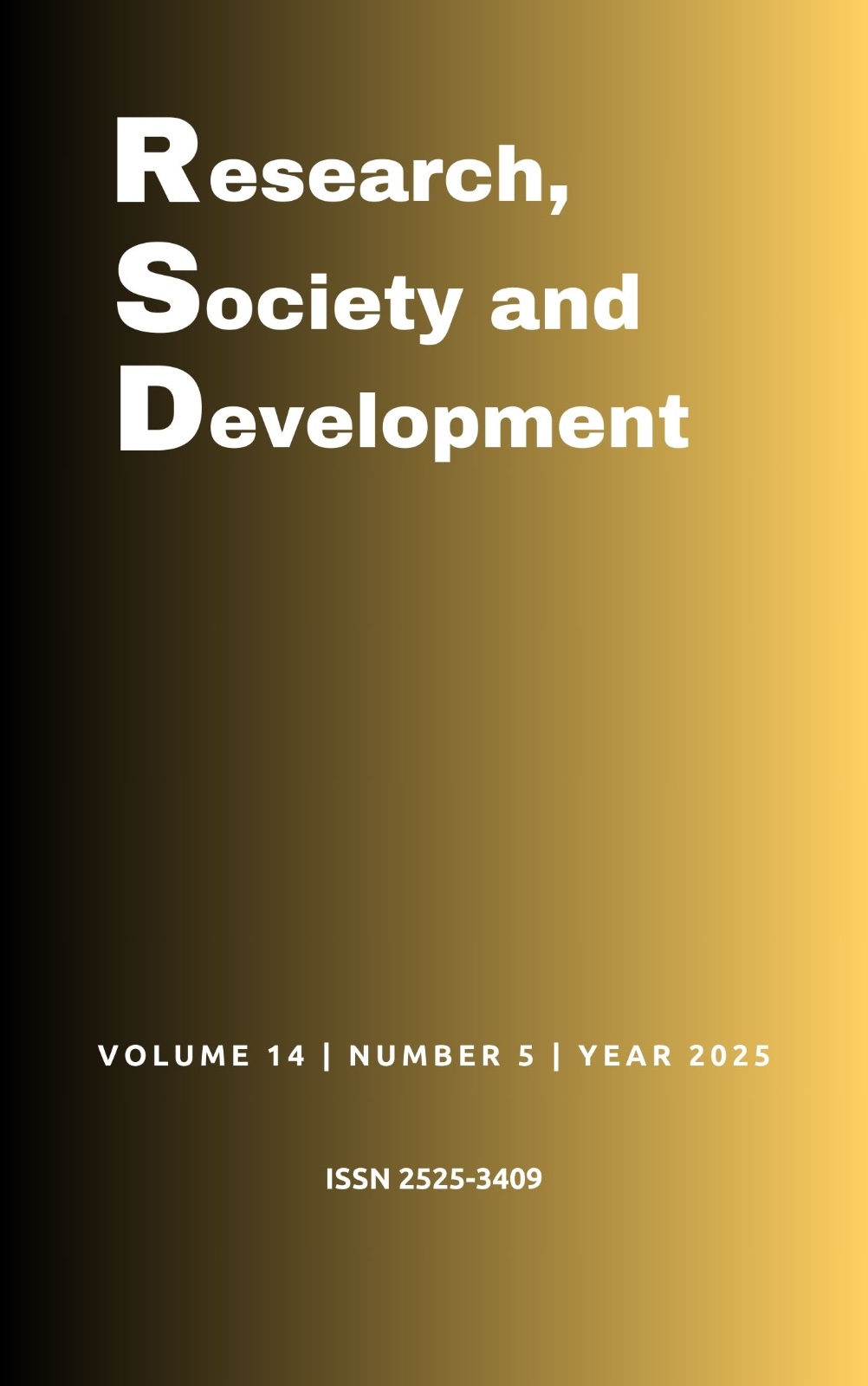Articulation between Family, Mathematics Education and Ancestry Tests in the school context
DOI:
https://doi.org/10.33448/rsd-v14i5.48733Keywords:
Family, Mathematics Education, Ancestry Tests, Anthropological Theory of Didactics, Teaching.Abstract
This article aims to understand the pedagogical implications of the articulation between Family, Mathematics Education and Ancestry Tests in the school context. The theoretical framework used is the Anthropological Theory of Didactics and the methodological framework adopted is action research. The praxeologies of a textbook and of the teacher are examined in a task that addresses percentages and graphic representations related to generational and genetic diversity. The study shows that the use of ancestry reports in teaching, combined with the active participation of families, can enrich mathematical learning by making it more contextualized, interdisciplinary and meaningful for students. However, the challenges of this approach are also discussed, such as the need for sensitive mediation in the face of possible identity tensions and inequalities in access to resources and knowledge. It is concluded that the integration between school, family and genetic data can expand the ecology of school praxeologies, favoring a more critical, humane and culturally situated mathematics education.
Downloads
References
Abreu, G. (2001). School numeracy in relation to home cultures. In: Askew, M. & Brown, M. (Org.). Teaching and Learning Primary Numeracy: Policy, Practice and Effectiveness. Bera: Research Review Series, pp. 39-44.
Almeida, C. B. (2022). A Gênese Documental de professoras em um trabalho colaborativo remoto para o ensino de Juros Compostos com o uso do GeoGebra. Tese (Doutorado em Educação Matemática) – Pontifícia Universidade Católica de São Paulo, São Paulo, 249 páginas.
Almouloud, S. A. (2015). Teoria Antropológica do Didático: metodologia de análise de materiais didáticos. Unión, San Cristobal de La Laguna. 42, 09-34. https://www.researchgate.net/publication/283715937_Teoria_Antropologica_do_Didatico_metodologia_de_analise_de_materiais_didaticos.
Araújo, A. J. (2009). O ensino de álgebra no Brasil e na França: estudo sobre o ensino de equações do 1º grau à luz da teoria antropológica do didático. 290f. Tese (Doutorado Educação)- Centro de Educação, Universidade Federal de Pernambuco, Recife.
Ariés, P. (2017). História social da criança e da família. Editora LTC.
Brasil. (2018). Base Nacional Comum Curricular - BNCC – Ensino Médio. Ministério da Educação.
http://basenacionalcomum.mec.gov.br.
Chevallard, Y. (1991). La Transposicion Didactica: Del saber sabio al saber enseñado. Argentina: La Pensée Sauvage.
Chevallard, Y. (1999). L’analyse des pratiques enseignantes en théorie anthropologie didactique. Recherches en Didactiques des Mathématiques, Grenoble. 19 (2), 221-66.
Corrêa, G. C. G., Campos, I. C. P. de, & Almagro, R. C. (2018). Pesquisa-ação: uma abordagem prática de pesquisa qualitativa. Ensaios Pedagógicos, Sorocaba. 2 (1), 62-72.
Fernandes, J. A. N. (2015). Ecologia do saber: o ensino de limite em um curso de engenharia. Orientador: Prof. Dr. Renato Borges Guerra. 226 f. Tese (Doutorado em Educação em Ciências e Matemáticas) - Universidade Federal do Pará, Instituto de Educação Matemática e Científica, Belém. http://repositorio.ufpa.br/jspui/handle/2011/13296.
Fridman, C. & Menezes, M. A. M. (2024). Você sabia que um teste de ancestralidade pode ajudar a identificar uma pessoa desaparecida ou o autor de um crime? Genética na Escola. 19 (1). Doi: https://doi.org/10.55838/1980-3540.ge.2024.548.
Junges, D. L. V. (2013). Relação família-escola e educação matemática: um estudo etnomatemático em uma classe multisseriada do RS. Educ. Matem. Pesq., São Paulo. 15 (2), 447-63.
Kimura, L., Lemes, R. B., & Nunes, K. (2022). Ancestralidade: genética, herança e identidade. Genética na Escola. 17 (1). Doi: https://doi.org/10.55838/1980-3540.ge.2022.421.
Lévi-Strauss, C. (1993). Raça e história. In: Lévi-Strauss, C. Antropologia estrutural dois. Ed. Tempo Brasileiro, pp. 328-66.
Lu, C., Ahmed, R., Lamri, A., & Anand, S.S. (2022). Use of race, ethnicity, and ancestry data in health research. PLOS Glob Public Health. 2(9): e0001060.
https://doi.org/10.1371/journal.pgph.0001060.
Marconi, M. A. & Lakatos, E. M. (2008). Metodologia Científica. (5ed.). Editora Atlas.
Nunes, M. et al. (2009). Relação escola família: mediação intercultural catálise da acção. In: Actas do X Congresso Internacional Galego-Português de Psicopedagogia (pp. 2184-2197), Braga: Universidade do Minho.
Silva, D. N., Ristum, M., & Dazzani, M. V. M. (2015). A Relação Família-Escola: Parcerias e Desencontros. In: Bastos, A. C. S., Moreira, L. V. C., Petrini, G., & Alcantara, M. A. R. (Org.). Família no Brasil: recurso para a pessoa e sociedade. Curitiba: Juruá, pp. 336-63.
Tamarozzi, G. A. (2020). Família e Identidade: uma realidade em mo¬vimento. Rev. Humanidades e Inovação. 7(2). https://revista.unitins.br/index.php/humanidadeseinovacao/article/view/2437.
Teixeira, L. A. (2020). Diálogo: matemática e suas tecnologias: estatística e probabilidade. Editora Moderna.
Downloads
Published
Issue
Section
License
Copyright (c) 2025 Chrystian Bastos de Almeida; Rafael Cerqueira Fornasier

This work is licensed under a Creative Commons Attribution 4.0 International License.
Authors who publish with this journal agree to the following terms:
1) Authors retain copyright and grant the journal right of first publication with the work simultaneously licensed under a Creative Commons Attribution License that allows others to share the work with an acknowledgement of the work's authorship and initial publication in this journal.
2) Authors are able to enter into separate, additional contractual arrangements for the non-exclusive distribution of the journal's published version of the work (e.g., post it to an institutional repository or publish it in a book), with an acknowledgement of its initial publication in this journal.
3) Authors are permitted and encouraged to post their work online (e.g., in institutional repositories or on their website) prior to and during the submission process, as it can lead to productive exchanges, as well as earlier and greater citation of published work.


